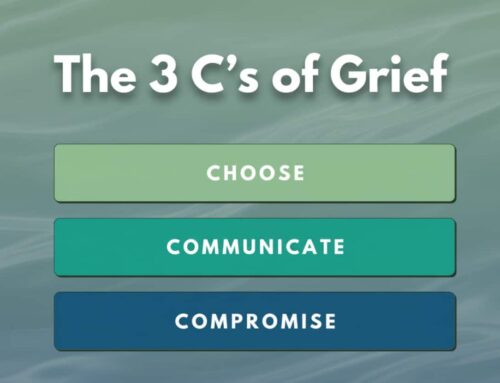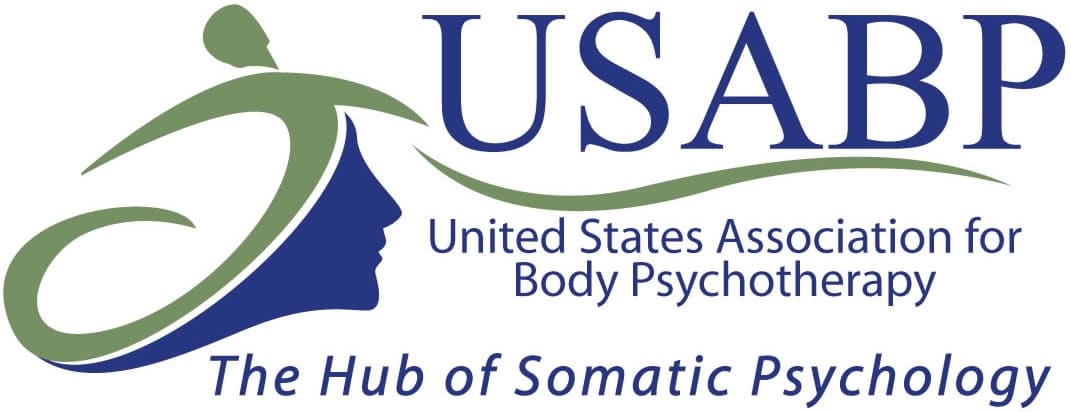Grief and loss can follow the death of a loved one, a serious illness, a relationship ending, a job loss, or even the loss of a beloved pet. Most people feel intense sadness at times and a strange sense of relief at others. The best treatment approach depends on your symptoms, your support network, and how much grief is disrupting everyday life. The guide below explains which therapies help, when to use them, and how people cope as time passes.
Immediate help: If you or someone else is at risk of harm, call 000. For urgent mental health support, speak to your GP or your local crisis line.
If you want calm, evidence-based support in Perth, visit grief counselling to see session options and book an assessment.
What type of counselling is best for grief
If you are looking for the best type of counselling for grief, its best to match the therapy to your needs: brief skills for acute distress, targeted treatments for complicated grief or prolonged grief disorder, and integrated care when trauma or serious illness is involved.
Here is a clear decision pathway you can use with a practitioner.
- For unhelpful thought loops and avoidance, choose cognitive behavioural therapy (CBT). CBT reduces catastrophic thoughts, guilt and rumination, and it rebuilds routines that support sleep, meals and social contact. You will use thought records, gentle exposure to avoided reminders, and behavioural activation to restore function in everyday life.
- For role changes after a loss, choose interpersonal psychotherapy (IPT). Grief often alters roles in a family after the death of a loved one or during palliative care for a terminal illness. IPT improves communication, strengthens supports with friends, and helps you talk about needs without conflict.
- For persistent, intense grief with impairment, choose complicated grief therapy or prolonged grief therapy. These are structured programs for complicated grief and prolonged grief that include imaginal revisiting, memory integration, and plans to restore life goals. They are useful when general counselling has not shifted symptoms and you feel stuck despite effort.
- For body-first symptoms, choose somatic psychotherapy. Somatic work regulates arousal with breath, grounding and movement when anxiety lives in the body. It reduces hypervigilance, improves sleep and helps you notice emotions before they spill over as anger or panic.
- For values and meaning, choose acceptance and commitment therapy. Many people call this commitment therapy because the focus is on committed action guided by values. ACT supports grief acceptance, flexible attention to feelings, and small steps that rebuild a life that still feels like yours.
- For shared loss, choose group or family counselling. Groups offer peer validation and coping skills. Family counselling aligns rituals, clarifies tasks, and respects different grieving styles so bereaved individuals can stay connected.
- Blend approaches when needed. A new treatment approach often combines CBT skills for sleep and structure, somatic techniques for physical symptoms, and grief-focused sessions to process the bond and the loss.
What is grief and how is it different from mourning
Grief is your internal response to a significant loss, while mourning is the outward expression shaped by culture, rituals and spiritual beliefs. Grief can follow the death of a loved one, the loss of health through illness, a relationship breakdown, the end of a career, or the loss of a beloved pet. Mourning includes funerals, memorials and community rituals. Bereavement refers to the period after a death. Anticipatory grief can start before a loss occurred, such as during palliative care. Clear words help a grieving person and their family choose useful resources and the right professional support.
What are the stages of grief
Stages are shorthand for common responses after a loss, not a checklist, and people move back and forth between them. What you feel changes with time, circumstances and support. Here are the main models you will hear about and how they apply in everyday life.
Kübler-Ross’ five experiences
- Denial: a protective numbness or disbelief when the loss occurred.
- Anger: protest at the death, the illness, the situation or yourself.
- Bargaining: “if only” thoughts that try to regain a sense of control.
- Depression: low mood and withdrawal as the reality lands.
- Acceptance: living with the loss, not “being over it”, while finding new routines.
These experiences can appear in any order, repeat in waves, and often return around anniversaries.
Worden’s four tasks of mourning
- Accept the reality of the loss.
- Process the pain of grief in body and emotions.
- Adjust to a world without the person at home, in roles and identity.
- Find an enduring connection while moving forward, keeping the bond as life continues.
Tasks give you active steps, which many grieving individuals find more practical than fixed stages.
Dual process model
- You naturally oscillate between loss-oriented focus (crying, longing, telling the story) and restoration-oriented activity (work, parenting, paperwork, cooking).
- Healthy grieving alternates between both. It is normal to switch attention many times a day as people cope.
Meaning and identity models
- Many people rebuild meaning, values and identity after a significant loss, including the death of a loved one or the end of a relationship.
- Continuing bonds, small rituals and aligned choices help life feel coherent again.
What this means for you
- There is no single timetable. Young people, older adults and different cultures express grief in diverse ways.
- Reactions also vary by context, such as a sudden death, a serious illness with palliative care, job loss, or the loss of a beloved pet.
- If intense grief and functional impairment persist for months, ask about prolonged grief disorder and targeted support such as complicated grief therapy or prolonged grief therapy.
- Day to day, name your feelings, use simple routines, and lean on support until the emotions ease enough to function. Focus on what helps you, not on comparing your grieving process to someone else’s.
How long does grief usually last
Grief has no fixed end date, and intensity rather than time usually guides care. Acute grief is often strongest in the first few weeks and months, then softens as routines rebuild. Prolonged grief disorder is considered when intense grief, yearning and preoccupation persist with marked impairment in everyday life. Track sleep, appetite, energy, concentration and social contact. If daily function stays very difficult despite your efforts, a targeted treatment can help.
Is what I am feeling normal after a loss
Sadness, anger, guilt, numbness, vivid dreams, worry and confusion are common after a significant loss. Relief can be normal after long illness or caregiving. Early grief often includes memory slips, low focus and changes in appetite. Seek extra help if you cannot resume basic tasks, if anxiety or depression intensifies, or if you feel cut off from friends and family.
What does grief do to your body and brain
Grief activates stress systems that affect sleep, memory, mood and the body. Many bereaved individuals report fatigue, muscle tension, headaches, chest heaviness and stomach upset. A regular sleep window, morning light, gentle movement and a healthy diet help the nervous system settle. If physical symptoms escalate or you are worried about an underlying illness, speak with your GP.
Can grief cause anxiety or depression
Yes. Grief can overlap with anxiety and depression, especially when sleep, appetite and social connection drop for more than two weeks. Watch for worry loops, panic symptoms, hopelessness and social withdrawal. If these symptoms persist, ask for screening and discuss a plan. Safer coping skills work better than recreational drugs or excess alcohol. Evidence-based counselling and practical support improve recovery for most people.
How do I know if I need grief counselling
Seek grief counselling if intense grief persists, avoidance grows, or daily activities remain hard to resume. Indicators include isolation, inability to work or study, escalating anger, or ongoing guilt that will not shift. First steps include talking with your GP, booking an initial assessment, or joining a support group. Therapy can also help if you face major decisions and want calm guidance.
How do I choose a counsellor in Perth
Choose someone with specific experience in grief and loss, and ask about their primary treatment approach. Check availability, location or Telehealth, fees and how outcomes are tracked. Ask if they provide simple coping skills for sleep, appetite and focus. If grief relates to a serious illness or a terminal illness in the family, ask whether they coordinate with medical teams for integrated care.
How do people cope with losing a loved one
People cope by telling the story, staying connected, and using simple routines and rituals. Helpful examples include writing a letter to the person, keeping a small memorial, walking in nature, volunteering, or practising faith-aligned rituals. Families can align on meals, school runs and small ceremonies that feel right. Friends can offer support by listening, handling admin, or joining you for gentle exercise.
What are healthy ways to process grief
Build anchors that stabilise the day and protect your ability to function. Try these simple practices used by grieving Australians:
- Keep a consistent sleep window and reduce caffeine late in the day.
- Prioritise a healthy diet with regular meals and enough fluids.
- Schedule movement, daylight and brief connection with a trusted person.
- Use short tasks to rebuild confidence, such as one admin step and one social touch point.
- Use online resources carefully. Choose sites with professional support and practical tools rather than endless scrolling.
- Pause large, irreversible decisions until concentration improves.
When should I seek help for grief
Seek urgent help for self harm thoughts, substance misuse, or an inability to perform basic tasks. Act if grief remains as intense or worsens after two months or if you feel stuck. Book a sooner review if panic attacks, severe insomnia or dissociation appear. If low mood deepens, ask about CBT, interpersonal psychotherapy, acceptance and commitment therapy, or grief-focused treatment to prevent a slide into depression.
What should I expect in the first session
Your counsellor will hear the story of the loss, map symptoms and supports, and agree on a plan for the next three to four sessions. Together you will decide whether CBT, IPT, acceptance and commitment therapy, somatic work, or specialised complicated grief therapy or prolonged grief therapy suits your goals. Early sessions focus on stabilising sleep, appetite and daily structure, then shift to meaning, relationships and long-term coping skills.
Quick guide to matching therapy with common situations
- Acute grief after a recent death – Choose brief counselling with CBT skills for sleep, appetite and routine. Add interpersonal psychotherapy if family roles have changed.
- Persistent yearning, preoccupation and impairment – Choose specialised prolonged grief therapy or complicated grief therapy. Ask for structured sessions with clear milestones.
- Grief mixed with trauma or a frightening loss – Combine somatic psychotherapy for body-based symptoms with CBT for avoidance and a grief-focused program for meaning and memory.
- Serious illness, palliative care or anticipatory grief – Use IPT to navigate roles and communication, plus acceptance and commitment therapy to clarify values and next steps.
- Young people or students – Use developmentally appropriate CBT skills, family sessions where helpful, and school or uni support for study structure.
- After the loss of a beloved pet – Use grief counselling that validates the bond, includes rituals, and rebuilds routine. Many bereaved individuals feel surprised by the depth of emotion. This is common and worthy of care.
Practical checklist for family and friends who want to offer support
- Speak simply and listen more than you talk. Avoid forced positivity.
- Help with physical tasks such as meals, school runs or forms.
- Invite the person out for short walks or coffee and accept no as a valid answer.
- Remind them that most people improve with time and support, and that professional help is available if symptoms persist.
- Share useful resources and offer to join the first session if that reduces anxiety.
Key terms at a glance
- Grief: the internal response to loss.
- Mourning: outward expressions shaped by culture.
- Complicated grief: persistent, intense grief that disrupts everyday life.
- Prolonged grief disorder: grief that remains impairing beyond expected periods.
- Complicated grief therapy and prolonged grief therapy: structured treatments for persistent symptoms.
- Cognitive behavioural therapy: skills-based treatment for unhelpful thoughts and avoidance.
- Interpersonal psychotherapy: therapy for role transitions and relationship strains.
- Acceptance and commitment therapy: values-based counselling that builds committed action.
- Somatic psychotherapy: body-based regulation when symptoms feel physical.
Grieving is a difficult time, but most people adapt with the right mix of support, skills and patience. If you are ready to speak with a practitioner who will match the treatment to your goals and situation, start with grief counselling and take a steady next step in a way that fits your life and relationships.
Related Posts
Fees And Rebates
We offer cost-effective solutions that can fit within your budget. The insights and skills acquired in therapy can continue to positively impact mental and emotional health long after the therapy sessions have ended, making it a truly worthwhile investment in yourself.















